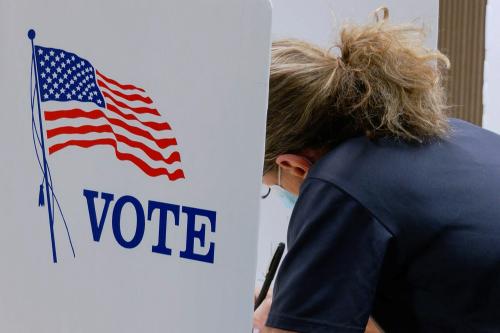President Obama should devote a portion of his State of the Union Address to singing the praises of legislative pork. I know this sounds a bit crazy but the President could urge legislators—Republicans and Democrats—to find those pet projects they’ve been eyeing and fund them. He could stand up in the House Chamber and give a pep talk to appropriators, some of whom made a career directing money to their states and districts.
Of course he won’t do this for a couple of reasons.
Despite a long, storied history of Congress engaging in this behavior, it is now fashionable to oppose it, and the president is on record as opposing earmarks. In this day and age pork is a political football. Everyone loves to benefit from pork, but no one wants to favor it publicly in spite of the fact that districts and states have needs. Pork can help meet those needs. Legislators often times have prime candidates for federal funding and earmarks are excellent vehicles to deliver such help.
Also, a president who encourages greater Congressional earmarking is a president who relinquishes his own power. Earmarks typically serve as a means by which Congress divides a portion of the discretionary budget. I have written elsewhere on this blog that earmarks usually do not increase the size of the pie, but rather determine how the pie is sliced. When Congress chooses not to slice the pie, Congressional earmarking is quickly replaced by Presidential Pork—a practice I discuss extensively in a new book. Presidents savor the power to distribute federal funds, and if Congress isn’t allowed to earmark, the White House surely will. As such, there is little personal incentive for the president to return that power to the legislative branch.
Nonetheless, let’s look at how, historically, pork was a way Congress got the job done. If leadership needed a few extra votes to pass the chamber, avoid a committee fight, or overcome a filibuster, there was always a road to be paved or a bridge to be built, and a bill to be passed. Those days are largely over. And Congress is facing a pandemic of gridlock.
President Obama could see real political and policy benefits if Congress returned to its prior practice of porkbarrel politics. Earmarking could allow for greater negotiating space or opportunities to build legislative coalitions. It could be used as a tactic to generate a more successful bargaining strategy between the branches and loosen the death grip that gridlock has on the legislative process. He should incur some political costs, turn over some distributive power, and hit the reset button on legislative dealmaking.
On Tuesday night, President Obama could use his State of the Union to endorse earmarking without ever having to utter politically risky words like “pork.”
The president could talk about “Congress reclaiming power.” He could encourage appropriators to get back to the work of funding federal programs. Many inside and outside of Congress have lamented the breakdown of regular order and of the budget and appropriations processes. A return to normalcy in this context could serve a legislature that is seemingly out of options.
Rather than discussing pork directly, the president could discuss areas of policy that lend themselves to the practice. He could focus on transportation infrastructure, power grids, and other non-controversial areas that require government funding. He could avoid policies that he knows will ignite the flames of opposition: high-speed rail, renewable energy, etc. Instead, drive home the point that there are a few things everyone can agree on: we need well-paved roads, safe airports, navigable ports, sturdy bridges, and a power system that won’t fail.
Use an old trick that Speaker O’Neill used—that Hardball host Chris Matthews frequently references. Find failing bridges or shovel-ready projects that exist in the congressional districts of your opponents. Specifically bring them up in the speech. If it’s a highway in Richmond, VA, that needs resurfacing, mention that you want to help Eric Cantor’s constituents. If it’s a bridge in Western Ohio that needs reinforcing, turn around from the rostrum and say you want to help Speaker Boehner’s voters.
The president needs to avoid talking-point terminology like “a crumbling infrastructure” and focus on a message that works. Talk about business owners who depend on well-maintained roads to increase efficiency and decrease costs. Paint pork not as something the big spending liberal wants, but something the penny-pinching small business owner needs for the survival of his business.
In last year’s address, the president struck the right tone when he said, “The CEO of Siemens America—a company that brought hundreds of new jobs to North Carolina—has said that if we upgrade our infrastructure, they’ll bring even more jobs.” The president needs more of this. He needs more detail. He needs to explain who benefits from this in North Carolina and use more examples like it.
The president doesn’t have to call it pork or earmarking, but he really should signal to Congress that it’s ok to renew the practice, and if anything it might help Congress save itself from….itself.



Commentary
SOTU 2014: Obama Should Encourage Congressional Earmarks
January 27, 2014